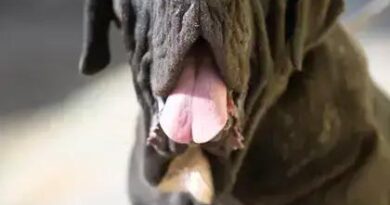What is Scavenger
What is Scavenger?
The term scavenger refers to an organism that primarily feeds on dead or decaying organic matter. In the animal kingdom, scavengers play a crucial role in the ecosystem by helping to recycle nutrients and maintain the balance of various habitats. They consume carrion, which is the decaying flesh of dead animals, and in doing so, they contribute to the decomposition process and prevent the spread of disease.
Characteristics of Scavengers
Scavengers possess unique adaptations that enable them to locate and consume carrion effectively. Many scavengers have an acute sense of smell, allowing them to detect dead animals from great distances. For example, vultures can sense the scent of rotting flesh from miles away. Additionally, scavengers often have strong beaks or teeth designed for tearing through tough hides and bones, making them efficient at accessing the nutrients within carcasses.
Examples of Scavengers
Common examples of scavengers include vultures, hyenas, and certain species of crabs and insects. Vultures are perhaps the most well-known scavengers, often seen soaring high in the sky, scanning the ground for potential meals. Hyenas, while often portrayed as ruthless predators, are also adept scavengers that will consume the remains left by larger carnivores. Insects like blowflies and beetles are also critical scavengers, breaking down organic matter and returning nutrients to the soil.
The Role of Scavengers in the Ecosystem
Scavengers play an essential role in maintaining ecological balance. By consuming dead animals, they help to control populations of decomposing matter, which can harbor pathogens and attract pests. This natural cleanup crew ensures that ecosystems remain healthy and functioning. Without scavengers, dead organic material would accumulate, leading to imbalances that could affect other species and the environment.
Scavenging Behavior
Scavenging behavior can vary widely among different species. Some scavengers are opportunistic feeders, consuming whatever carrion they can find, while others may exhibit more specialized feeding habits. For instance, certain birds may prefer the remains of specific types of animals, while mammals like raccoons may scavenge from human refuse as well as natural sources. This adaptability allows scavengers to thrive in diverse environments.
Scavengers and Human Interaction
Human activities can significantly impact scavenger populations. Urbanization, pollution, and habitat destruction can reduce the availability of carrion, making it difficult for scavengers to find food. However, some scavengers, like raccoons and seagulls, have adapted to urban environments, finding new food sources in garbage and landfills. This interaction highlights the resilience of scavengers and their ability to adjust to changing landscapes.
Scavengers in Popular Culture
Scavengers have often been depicted in popular culture, sometimes portrayed negatively as greedy or unclean. However, their ecological importance is increasingly recognized in documentaries and educational programs. By showcasing the vital role scavengers play in the environment, these media help to shift perceptions and promote a greater understanding of biodiversity and ecosystem health.
Conservation of Scavengers
Many scavenger species are facing threats due to habitat loss, poisoning, and hunting. Conservation efforts are crucial to protect these animals and their habitats. Initiatives such as creating protected areas, promoting awareness about the importance of scavengers, and implementing policies to reduce poisoning incidents can help ensure that these vital organisms continue to thrive in their natural environments.
Conclusion
Understanding what a scavenger is and the role it plays in the ecosystem is essential for appreciating the complexity of nature. By recognizing the importance of scavengers, we can better understand the interconnectedness of life and the need for conservation efforts to protect these often-overlooked creatures.


